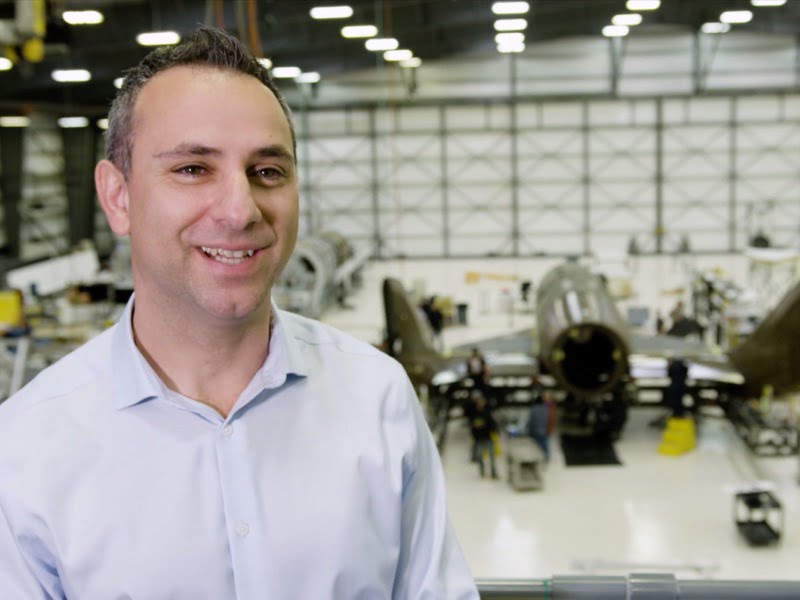The Australian Space Agency is set to go on a recruiting drive in order to better meet the demands of the burgeoning local sector, amid concerns over its resourcing and the fact that no launch permits have been issued yet.
Space agency chief Enrico Palermo recently appeared for the first time since he took over the top job from Dr Megan Clark in late March. He faced of questions from senators on whether the agency was doing enough to ensure local companies were able to access launch permits, and if the government offered enough support.
“I am focused on really thoughtfully thinking about how we take the agency forward into the future – the decisions about the agency and its programs that we make now will have a dramatic effect over the next 10 to 15 decades of this,” Mr Palermo said.

Gilmour Space Technologies chief executive Adam Gilmour – a pioneer of the local sector – recently told InnovationAus that the government was “behind the eight ball” on space, and this is damaging the ability of companies like his to compete with their international rivals.
The Space agency is yet to grant any launch permits to Australian companies, despite receiving one application in 2019 and seven during 2020.
Crossbench senator Rex Patrick questioned whether the agency has its priorities in order.
“You’re clearly looking at promotion and international engagement. In circumstances where industry is steps ahead of you guys, is it not appropriate at this point in time to focus more resources to support that industry and then come back to some of the other activities that are important?” Senator Patrick said.
“I’ve spoken to launch companies in Queensland who again say, ‘we’ve got the work, but we’re going to lose it because we don’t have the ability to launch here in Australia because of the regulatory brakes’.”
In response, Mr Palermo said the space agency would soon be recruiting to meet the demands of the growing industry.
“We need to take a balanced view of how we allocate funds. Our recruitment round is focused on supporting the launch industry. That’s an indicator that we are investing more,” he said.
Senator Patrick urged the agency to set a deadline for when the first permit will be approved.
“If you don’t have any aim point at all, there’s no ability to track or inquire about performance. You, coming from industry, will know that you always set aim points everywhere, and you try and hit them,” he said.
“You don’t always get there, but if you don’t have the aim point, then actually people don’t proceed to that point as quickly and as diligently as they can. It’s a serious question because industry is sitting there.”
Mr Palermo said he hoped to have a permit issued before the next Senate Estimates hearing in mid-May.
Labor senators raised two primary concerns with the space agency: the level of funding provided by the government, and similar concerns around the launch permits.
Labor Senator Murray Watt questioned whether the $140 million over four years allocated to the space sector under the federal government’s Modern Manufacturing Initiative is adequate.
“Obviously, in Australian terms, it’s an industry maybe not in its infancy but emerging, and we’ve got big international players out there: the US, China, Russia and many other countries who’ve made massive investments over a very long period of time,” Senator Watt said.
“Do we really think that a $140 million investment over four years is going to be enough to see Australia compete?”
Last week Gilmour Space Technologies inked a deal with Fleet Space Technologies to launch six nanosatellites into orbit in 2023. It’s a significant boost for Australia’s sovereign capability in the sector, but has had little support from the federal government, Mr Gilmour said.
“It just makes it harder to get the job done. I’m in the middle of raising my Series C and I’m going to successfully raise a decent amount of money, but at a valuation significantly under my competitors around the world, and the main reason why is because I don’t yet have any kind of deal from the Space Agency or any contract from the Air Force,” Mr Gilmour told InnovationAus.
“And if I look at my competitors that are at the same level as I am around the world, they’ve all got contracts already. That means they can get a much higher valuation and raise a lot more money. We’re continually behind the eight ball in Australia.”
Do you know more? Contact James Riley via Email.


Launch is important, however this should not be funded by ASA directly, for sure permits need to be put in place like announced recently in SA and Southern Launch.
Gilmour space technologies have not got a product or launched anything looking at their news content and maturity – so why would Government and defence want to give them a contract; surely they must prove a capability first and foremost. I agree with Mr Palermo of building his team with balance and correctly for Australia not just to benefit one company.